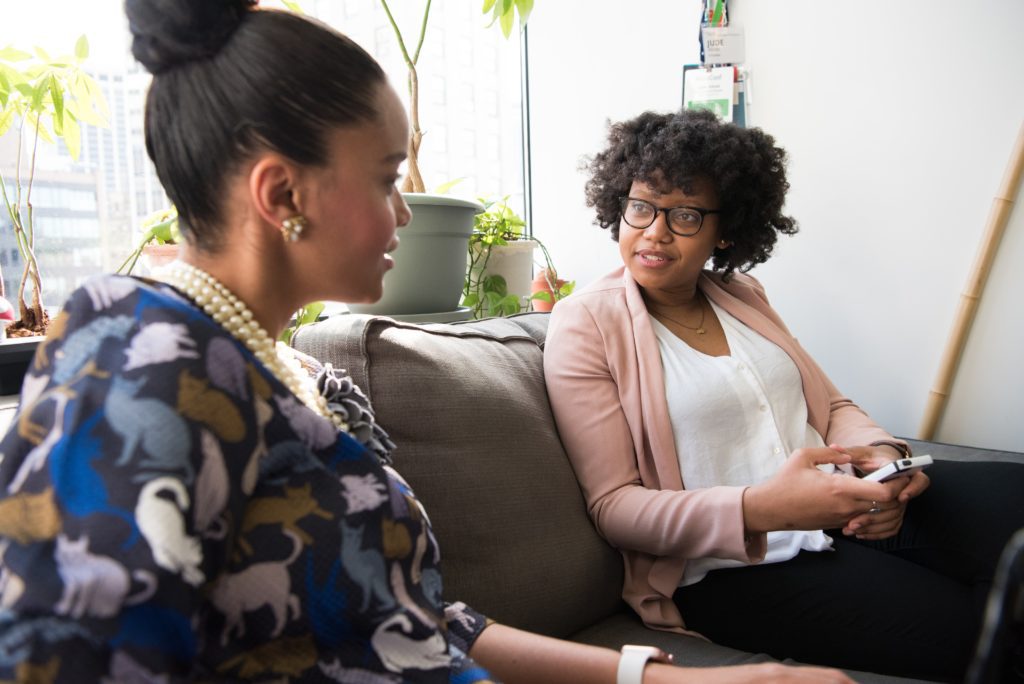
Are we experiencing a mental health crisis?
As the United States continues to recover from the mental, physical, and emotional impacts of the COVID-19 pandemic, more and more Americans report experiencing worse mental health than before the pandemic, with many believing the nation is now reaching crisis levels.
A recent CNN and Kaiser Family Foundation survey polled 2,000 adults across the United States on the impact the last 2 ½ years have had on individual and family mental health. The survey provides an in-depth overview of the nation’s current mental health prognosis and valuable insight into mental health’s impact on individual and family dynamics, why those with mental health issues aren’t seeking treatment, and what is being done to address the growing mental health crisis.
What does the survey tell us about America’s mental health crisis?
Insights from the survey reveal that most participants have experienced first-hand the often devastating and distressing impacts of mental illness – whether it be themselves or their loved ones.
Of those surveyed by CNN/KFF, 9 in 10 participants believe that the United States is experiencing a mental health crisis. In addition, over two-thirds of participants identified the opioid epidemic as reaching crisis levels. Over half reported mental health among children and severe mental illness in adults as hitting crisis levels. Additional reports by CNN have covered the growing mental health crisis among children.
Between the start of the pandemic in 2020 and the survey period of July 28 through August 9, 2022 – over half of all participants reported that they or someone in their family had experienced a severe mental health crisis. The classification includes those who received in-patient mental health treatment, was deemed a threat to themselves or others, or engaged in self-harming behaviors.
When asked about individual mental health, participants reported feeling more anxious, more depressed, and more isolated than before the pandemic. A total of 1 in 5 participants rated their mental health as fair or poor. Instances of poor mental health ratings were outsized in those under the age of 30 and those with an income below $40,000 per year.
Similarly, 1 in 3 participants reported feeling anxious either constantly or on most days, and 1 in 5 reported being depressed constantly or on most days. Those numbers jumped to half of all participants under 30.

While social status, sexual identity, and age have a significant role in overall mental health, 1 in 3 participants reported that income and politics were substantial factors impacting their stress levels, with 1 in 4 reporting work and personal relationships as the driving factor in their stress levels.
The report also showed a jump in mental health-related crises compared to pre-pandemic levels.
In 2021, drug overdose deaths reached record highs, posting a steady increase year over year since 2019. Alongside drug overdoses, reports of suicide also increased significantly since before the pandemic – reaching record highs in 2021 following a two-year decline before the pandemic.
Among age cohorts significantly impacted by mental health were those between the age of 12 and 17, who saw significant mental health impacts in the wake of school closures, increased isolation, limited in-person social engagement, and an increased amount of time spent online. In 2021, 12 to 17-year-olds seeking emergency room-related mental health treatment jumped 31%.
While a vast majority of participants believe the mental health crisis is present among the country’s children and adults, many also agree that more needs to be done to address it. 4 in 5 participants believe that more should be done by individuals, families, and healthcare providers to address mental health issues – placing their intervention over the involvement of government, schools, and religious institutions.
Although participants acknowledge that more needs to be done, seeking help remains challenging.
In 2021, only 22% of those experiencing a mental health-related issue sought treatment. Many either did not seek treatment or did so without reporting. Most participants who reported experiencing mental health issues but did not seek treatment reported “not feeling comfortable” talking about their mental health issues with close friends, family members, or loved ones. Additional factors driving those not seeking care were work or family schedules, healthcare costs, fear, and embarrassment.
While overwhelming majority of those polled believe the country is facing a mental health crisis, an outsized number of people choose not to seek treatment for their mental health-related issues. Some who do, especially those in the minority communities, do not feel they are receiving the care they need from mental health providers. While more people sought mental health treatment during the pandemic, over three-quarters of participants reported not seeking mental health services, a total of 80%.
What is being done about America’s mental health crisis?
Efforts to improve communication and awareness around mental health have taken a new foothold as more people recognize the importance of mental health management and its impact on overall health.
The recent CNN/KFF survey indicated critical factors in why those who may have benefited from mental health services didn’t seek them. Most participants cited rising healthcare costs, having minimal or no mental health coverage on their insurance, and a shortage of providers as significant barriers to accessing quality care. Representation among mental health professionals was also a driving factor.
Programs like the American Rescue Plan are directing billions of dollars into addressing the ongoing mental health crisis and are among the critical focal points of the Biden-Harris Administration’s effort to address mental health. Additional resources, like the rebranding of the National Suicide Hotline to 998, will provide 24/7/365 access to mental health services by phone, text, or chat. The goal of 998 is to provide easier access to mental health resources than before. Within the first month of its launch, the hotline saw a 45% increase in call volume, with 85% of participants in the CNN/KFF survey reporting that they would utilize the hotline if they were experiencing a mental health emergency.
However, there is a big difference between saying and doing. Despite efforts to destigmatize mental health and promote seeking mental health awareness, there is still a significant lapse between those who need help and those who seek it. This is especially the case among men, who continuously report fewer instances of seeking mental health treatment than their female counterparts.
Part of addressing the ongoing mental health crisis is making more individual programs and resources available for those seeking mental health services. The refocus of mental health programs for men, as well as easily accessible online mental health services, have aimed at addressing these accessibility issues.
How is the University of Providence making a difference?
The University of Providence is working to address the nation’s growing mental health crisis by offering a Master’s of Science in Clinical Mental Health Counseling (MSC) program. UP’s MSC program allows students to receive a general counseling degree or concentrate on addiction or rehabilitation counseling. UP’s programs combines online learning, virtual face-to-face clinical skills development, practicums, and internship hours. Students graduate ready to sit for the NCE –licensure accepted in all 50 states.
UP’s concentration offerings address the nation’s growing drug problem.
In recent years, the opioid crisis facing the nation has taken hundreds of thousands of lives – many of them far too soon. Addressing the growing drug dependency problem is not just about helping addicts to get clean, but helping heal the underlying causes of addiction and provide them with a path forward to manage their mental health and keep them from drug dependency.
UP is preparing students to address these challenges with two specialized concentrations in addiction and rehabilitation counseling. UP’s programs prepare students to treat addicts with ethical, professional, and sensitive care – opening their eyes to a life beyond drug addiction.
Students are prepared to meet the growing needs of the industry with critical skills.
Today’s mental health counselors must hold a variety of clinical and communicative skills in their counseling tool bag. Whether counselors work in schools, hospitals, in-patient centers, or private practice, each patient poses a unique and complex situation. UP’s program prepares students to meet these needs with critical skills across all MSC program offerings. Students will learn:
- Competencies in diagnosis and assessment
- Evaluating the mental health needs of clients and patients
- Evidence-based counseling techniques
- Communication and listening skills
- Interpersonal skills
- The development of therapeutic relationships
- The development of mental health diagnoses and treatment plans
- Interacting in a culturally sensitive context
- Applying mental health knowledge in a professional, ethical, and culturally sensitive way
Addressing the nation’s growing mental health crisis will not be easy. Although the current state of mental health in the country has reached crisis levels, the fight is not lost. While obstacles to care, reluctance to seek care, continued stigmatization of mental health services, and long-term care quality impedes the work of counselors to address these growing crises and treat the patients who need it the most, efforts are unfolding on multiple fronts to improve care quality and outcomes.
UP’s Masters of Science in Clinical Mental Health Counseling program prepares students to enter the field with competent skills to treat patients professionally, ethically, and with cultural sensitivity. Whether it’s through UP’s general counseling degree or with a concentration in addiction and rehabilitation counseling – the MSC program is suited to prepare students for a rewarding career.
Want to know how to apply for a Masters in Clinical Mental Health Counseling?
Applying to UP has never been easier.
Start My Application
